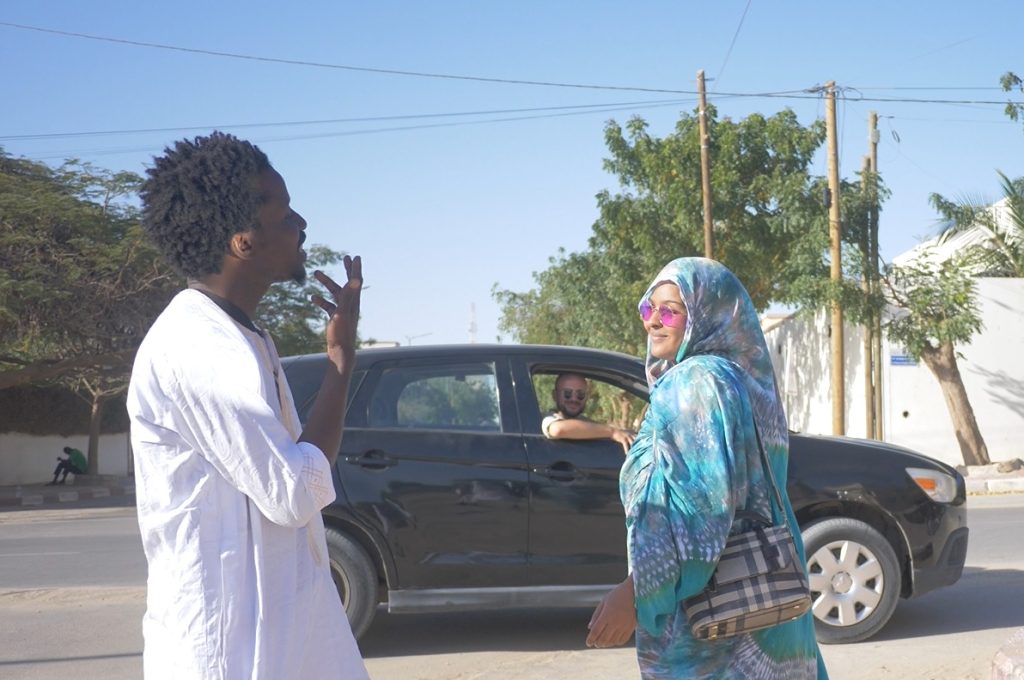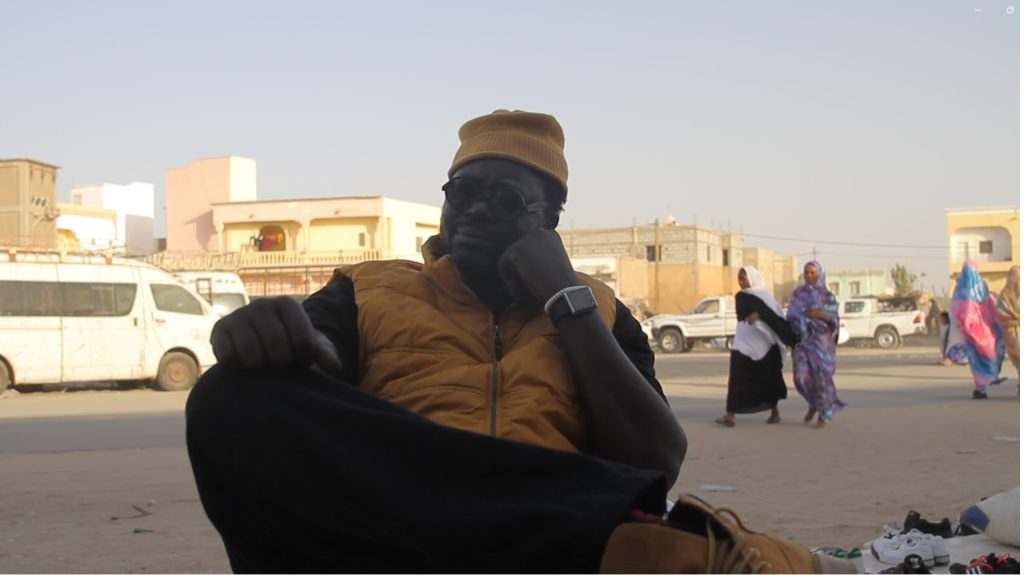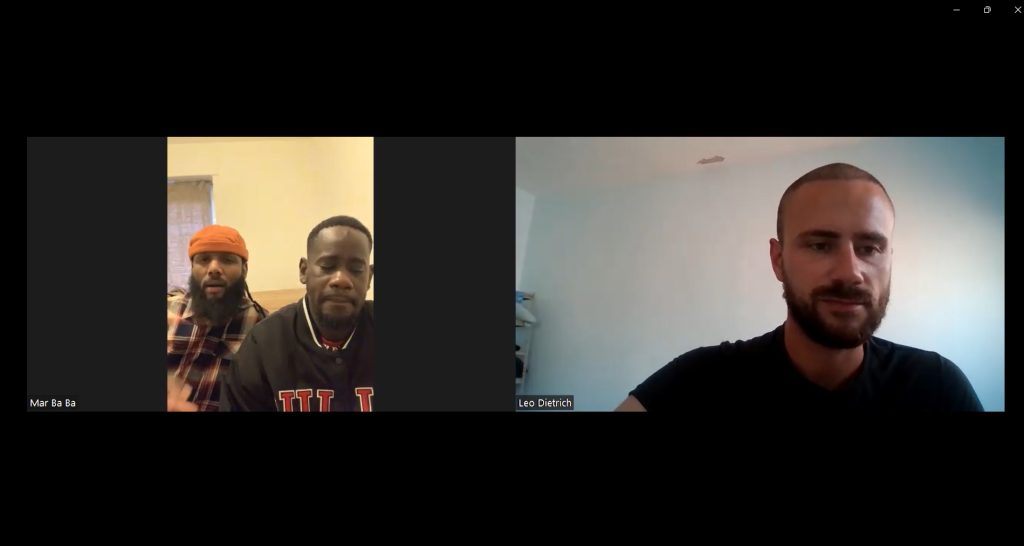Ramadan Kareem! Life in Mauritania stands still during the day. Store vendors sleep in their stores, officials sleep in office and projects whose completion does not seem immediately necessary are postponed. But life begins in the evening and lasts deep into the night. Most of the people spend the nights with family and the closest circle of friends. However, my fears that the standstill in the country would also be a standstill in my research have not yet been fulfilled. In fact, I’ve been pretty lucky. As chance would have it (once again), I was able to get the well-known singer Leila Moulay to sing a song with me. The song has been released in the meantime, and we are currently shooting a music video. Leila Moulay has released very few songs in her career and any sign of life from her is met with much attention from her fans. In fact, in 2013 she caused a nationwide controversy when she appeared in a video by rapper Hamzo Bryn without the malahfa and left her hair uncovered. I already spoke with Hamzo about the debate, which he himself attributed to the growing influence of Salafists in the 2010s. According to him, the video published at that time was seen in a series with supposedly “godless” statements by blogger Mohamed Sheikh Ould Mkheitir, whose critical remarks toward the Prophet Muhammad led to his death sentence that was later commuted to several years in prison. Ould Mkheitir now lives in exile in France. For Hamzo Bryn and Leila Moulay, the debate at the time was a gain for their respective careers. It should be said that there are many women in Mauritania who do not wear headscarves. Unlike in Saudi Arabia or Iran, there is no legal obligation to wear it. In addition to non-Muslim foreigners, it is primarily members of the Wolof/Pulaar/Soninke who occasionally do without the headscarf. However, it remains a social taboo for members of the Moors, i.e., the “white” Bidhan and “black” Haratin. Leila Moulay is Bidhani. Working on the song together meant that we had a lot of opportunity to have conversations. Eventually, she invited me to her home two days in a row during Ramadan and we spent good evenings with family and friends. Not only was I able to conduct an interview with her, but I also gained insight into the culture of Ramadan in Mauritania. We played the traditional game Sig and traditional music was played with a keyboard. There was singing, dancing and fun. And needless to mention there was Mauritanian tea in abundance and the Iftar was a feast.

I was also able to interview Mauritanian artist, slammer and co-organizer of the Assalamalekoum Hip Hop Festival, Mister X. The location he chose for the interview, right in front of his store, in the middle of the street, was a nice contrast to the recording studio walls of many others. A few days ago, I spoke online with Adnan Abdou, a Mauritanian who now lives in the US. I was taken aback by his openness. After this preliminary conversation, an interview is planned for Sunday. Above all, his critical perception of religion provides an important contrast to a topic I have spoken about to almost no one – perhaps the biggest taboo subject in Mauritania? Another interview was made with Diam Min Tekky, one of the best-known Mauritanian hip-hop bands currently living “in exile” in Belgium. DMT do not hold back with their criticism of the state and the conditions – even beyond the music they address grievances such as the expulsion of black Mauritanians during the conflict with Senegal in 1990. DMT are Pulaar and often it seems to me that it is the Pulaar who raise their voices loudest among the black population in Mauritania. Interestingly, a composer friend of mine, who is himself Pulaar, said to me in the studio a few days ago, “Leo, I’m going to tell you something now that no one else has told you yet. The fundamental conflict in Mauritania is a conflict between Bidhan and Pulaar.” I have no reason to doubt that, my observations tend to the same direction. Besides musicians, interviews with activists are also planned for the next days. Now we will see what can be realized. But in any case, the rhythm of most of my interviews now has also shifted to the night.

For me, it is important to let all voices have their say in order to represent the polyphony of Mauritanian society in the research. This concerns the question of profession (artist, activist, journalist), age, gender and ethnicity. At the same time, however, I also see difficulties in a later publication of the documentary, especially with regard to the latter. I found a society that is in the process of growing together, but still divided along ethnic lines. Now, with my research, I try to understand the actual state of affairs and to describe it by means of documentation, but it is not always easy to put a finger into a wound that apparently is in the process of healing. Some of my interview partners, however, I have noticed, do not want to live in what they think of as a lie and do not believe that this wound can heal as long as some topics are not brought up again and again.

I’m very happy with the progress, but at the latest with the release of the song (and soon the music video), a role has been added for me that takes me out of the ranks of a mere observing researcher. We should not overestimate it, but at least recognize the different roles that Mauritania has offered me during my time here. I am sure that I benefit from it. Without the song, no interview with Leila would have been made.

